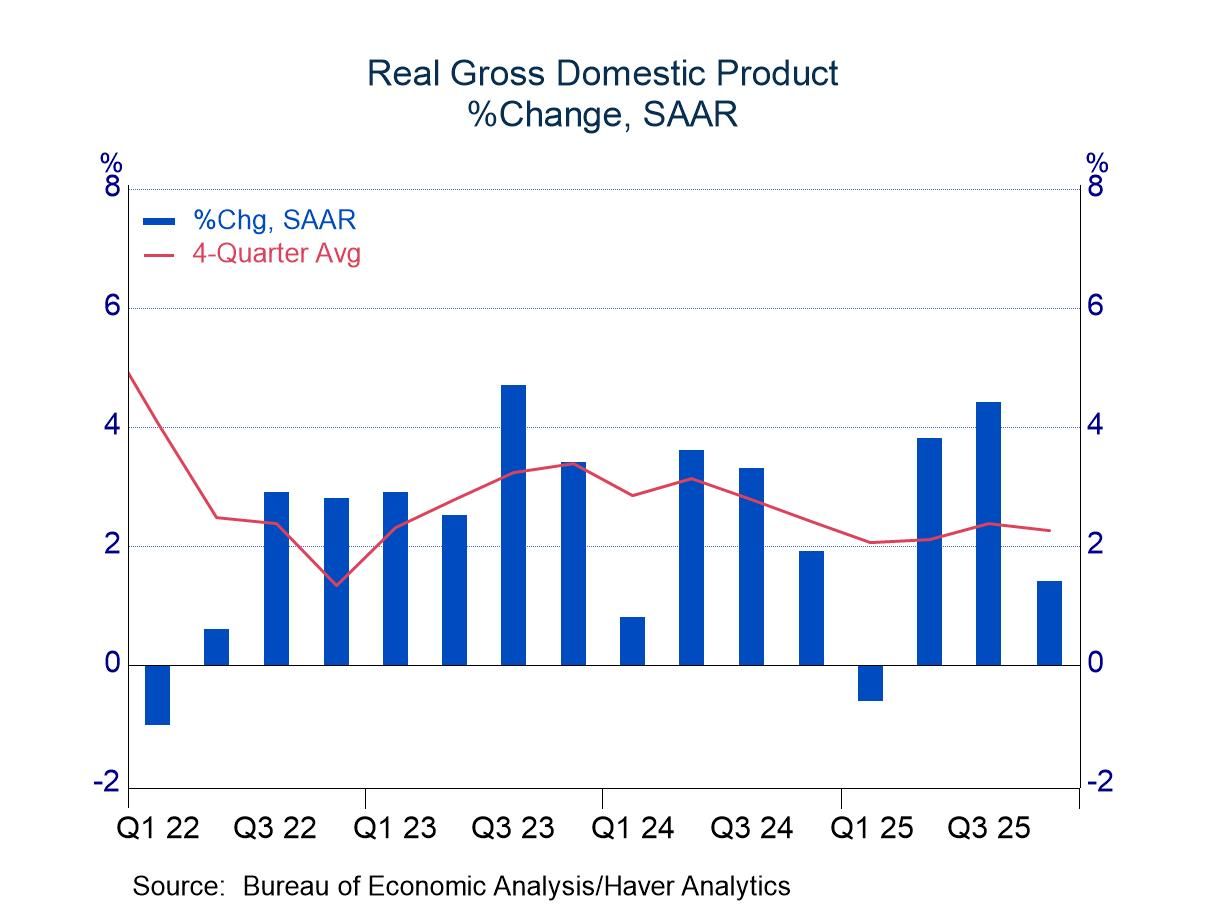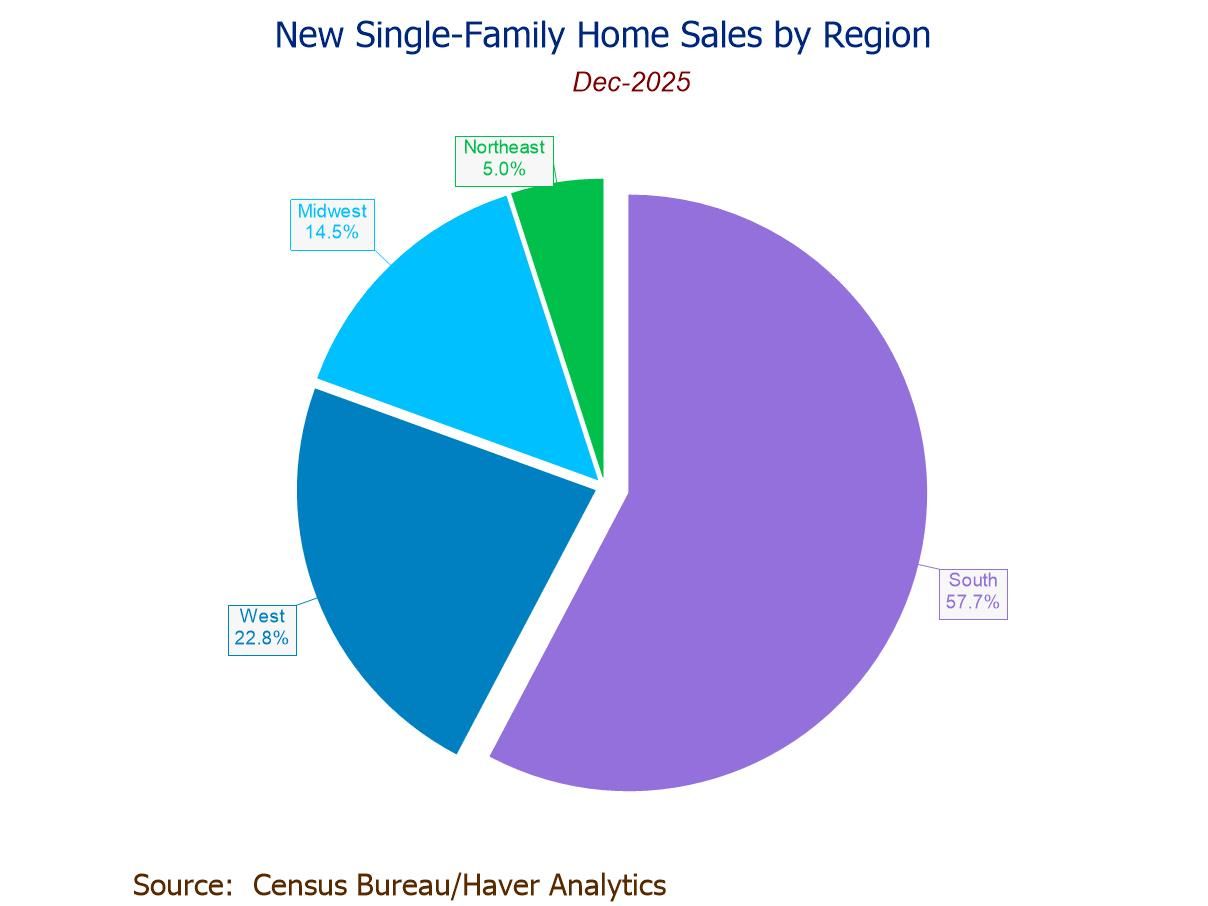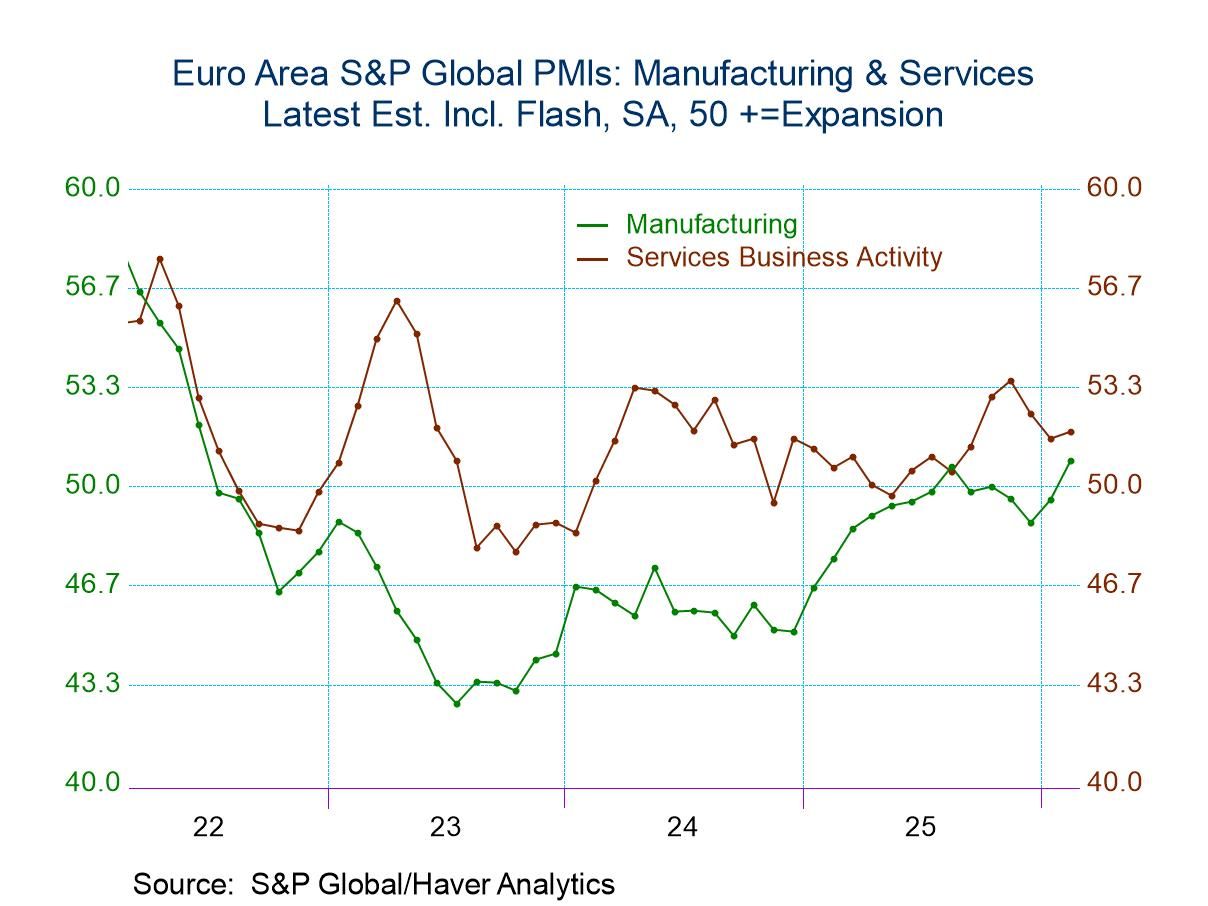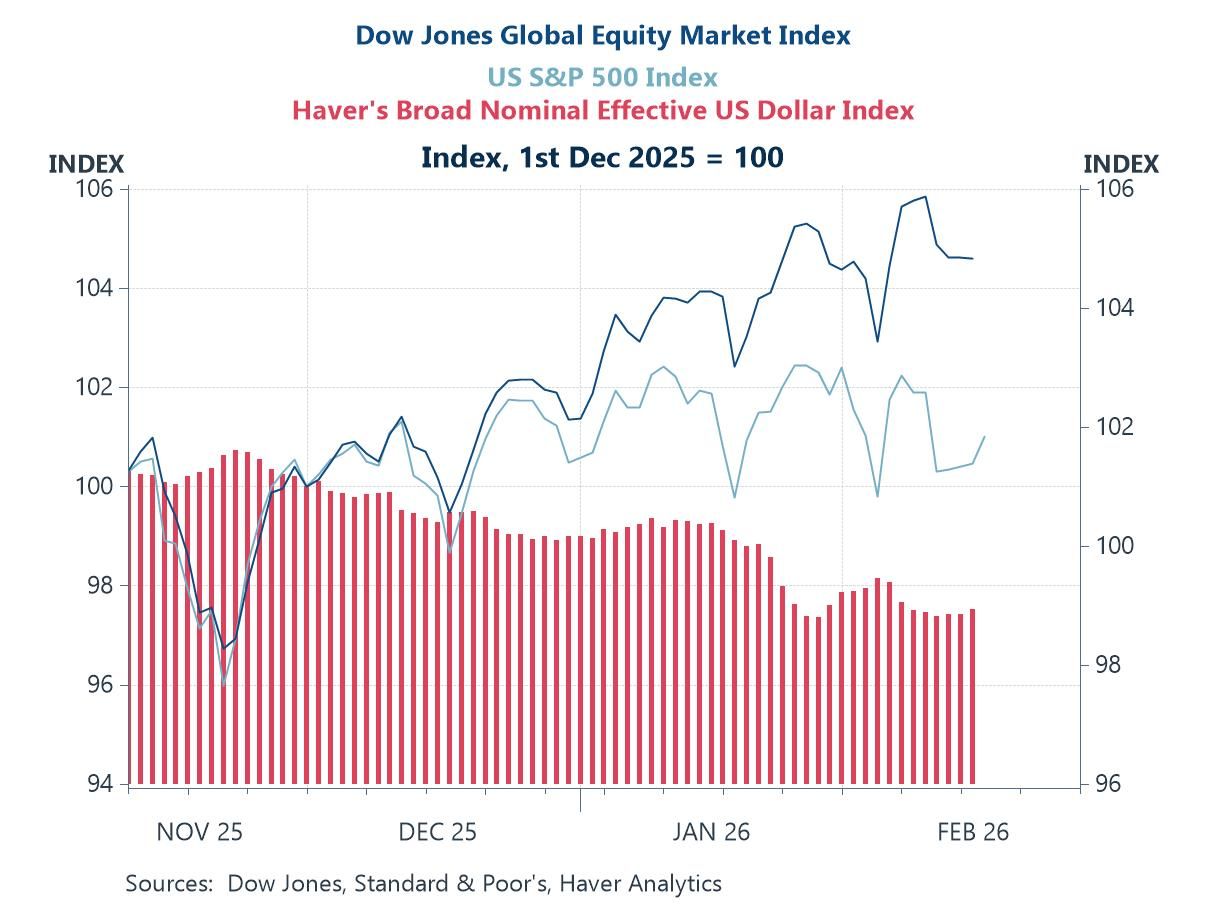EU Commission Indexes Continue to Show Rebound

EMU- Long slow slog of recovery? EU Commission indexes for January 2023 show continuing rebound for the European Monetary Union as it continues to climb from its October low. The January index for the Monetary Union rises to 99.9 in January from 97.1 in December. There are month-to-month improvements in all the components except for construction. The reading for construction falls to 1 in January from 4 in December. However, the industrial index rises to 1 from -1, the consumer confidence index reduces its negative reading to -20.9 from -22.1, retailing does the same, rising to -1 from -3 in December. The all-important services sector advances to a reading of 11 in January from 8 in December. These EMU indexes are net diffusion indexes that are the result of subtracting negative responses from positive responses to create the net diffusion reading. The headline sentiment reading is a different animal; it's an index.

As the world worries about ‘recession’ Most EMU members show January improvement! The European Monetary Union indexes available for 18 of its 19 members shows improvement in January across the board with only two exceptions: Belgium and Slovenia that backtrack month-to-month. This is a significant improvement from December when six members backtracked month-to-month including one of the four largest European Monetary Union members, France. Eight European Monetary Union members showed declines month-to-month in November, among those were two of the largest economies, France and Spain.

Sector performance in EMU The table above ranks industries across the four largest monetary union economies. The consistently strongest sector in the EMU is construction with an average standing across the four largest economies at the 71.6 percentile level, well above the 50th percentile level that indicates the median on this timeline. The second strongest sector is retailing that averages a 66.7 percentile standing, although retailing in Germany has a 34.8 percentile standing, below its historic median. The industrial sector has rankings above the 50th percentile for all members, but scantly above 50 for France, for example, and not far above the 50th percentile for Italy and Spain. The average for the four largest economies is a 60th percentile standing. The services sector, which is the job sector, is uneven with two of the largest economies, Germany and Spain, having standings in their 30th percentile. The average services standing for the four largest economies is at the 55th percentile. The weakest sector overall is consumer confidence with an average large country standing in its 16.8 percentile, extremely low with the two largest economies, Germany and France, having the two weakest readings for consumer confidence.
Even though there is some ongoing recovery in the EMU, the standing for the overall reading is only at its 48.9 percentile which is slightly below its median on this timeline. Across the 18 reporting monetary union members only four countries Italy, Greece, Malta, and Cyprus have economic indexes above their historic medians. Among the large countries, France and Spain, have readings in their low 40th percentile while Germany has a reading at its 37th percentile.
Changes since just before Covid struck Looking at changes since January 2022 before Covid arrived, the various EU indexes by country and by overall sectors shows only one sector, the industrial sector, has a stronger reading in January 2023 than it had in January 2020. Across the 18 early-reporting countries only Italy has a stronger EU sentiment reading and January 2023 than it had in January 2020 although Spain and Malta are unchanged on that timeline. Countries that have EU-sentiment measures that are 10 points or more lower than they were in January 2020 are Slovakia, Estonia, Austria, Belgium, Portugal, Finland, and Cyprus.
Summing up The period since Covid struck has been a difficult one for the European Monetary Union. On this timeline, consumer confidence is lower by 14 points, the services sector is weaker by 3 points, retailing is weaker by 2 points, construction is lower by 5 points. Only the industrial sector has gotten stronger on the timeline, rising by 6 points. High inflation in the monetary union has economic sentiment back on its heels. The ECB is raising rates and trying to get the inflation toothpaste back into the tube. In the meantime, the ongoing war between Russia and Ukraine continues to pose problems and risks for the European economy. While the European Commission Indexes for the EMU have been improving from their lows, the current readings are still extremely weak. In the face of this improvement, there are growing concerns about recession as inflation lingers.
Robert Brusca
AuthorMore in Author Profile »Robert A. Brusca is Chief Economist of Fact and Opinion Economics, a consulting firm he founded in Manhattan. He has been an economist on Wall Street for over 25 years. He has visited central banking and large institutional clients in over 30 countries in his career as an economist. Mr. Brusca was a Divisional Research Chief at the Federal Reserve Bank of NY (Chief of the International Financial markets Division), a Fed Watcher at Irving Trust and Chief Economist at Nikko Securities International. He is widely quoted and appears in various media. Mr. Brusca holds an MA and Ph.D. in economics from Michigan State University and a BA in Economics from the University of Michigan. His research pursues his strong interests in non aligned policy economics as well as international economics. FAO Economics’ research targets investors to assist them in making better investment decisions in stocks, bonds and in a variety of international assets. The company does not manage money and has no conflicts in giving economic advice.






 Global
Global